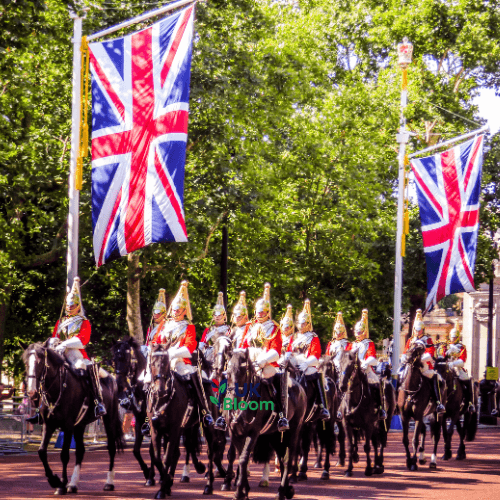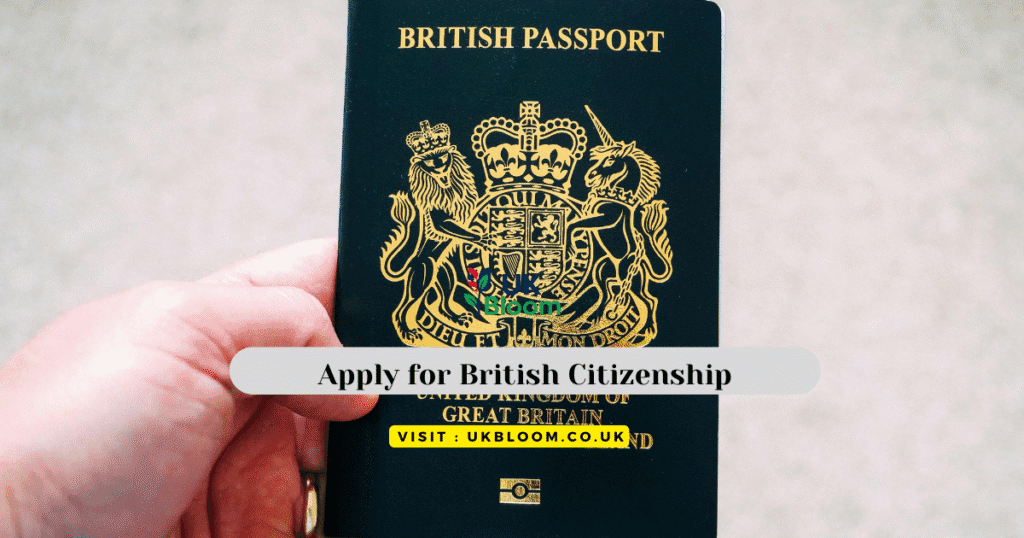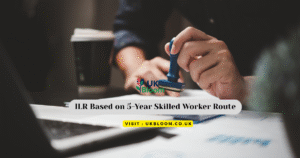Apply for British Citizenship
Why British Citizenship Matters
Gaining British citizenship is more than just a status upgrade. It gives you full rights and protections under UK law, including the right to vote, hold a British passport, and access services and benefits not available to temporary residents. For many, it’s the final step in making the UK their permanent home.
The Difference Between ILR and Citizenship
While Indefinite Leave to Remain (ILR) allows you to live and work in the UK indefinitely, it doesn’t grant the same privileges as full citizenship. You can’t vote in general elections or hold a British passport, and you may still be subject to immigration control in rare cases.
Table of Contents
Eligibility Criteria for British Citizenship in 2025
Holding Indefinite Leave to Remain (ILR)
To apply for British citizenship, you must hold ILR for at least 12 continuous months unless you’re married to a British citizen. In that case, you can apply immediately after receiving ILR.
Residency Requirements
You must have:
- Lived in the UK for at least 5 years before the application
- Not spent more than 450 days outside the UK in those 5 years
- Not spent more than 90 days outside the UK in the last 12 months
Good Character Requirement

The Home Office evaluates your criminal history, immigration breaches, and financial conduct. Even minor offences can lead to refusal, so honesty and transparency are key.
Knowledge of English and Life in the UK Test
Applicants must demonstrate English proficiency through an approved English language test or hold a degree taught in English. Additionally, you must pass the Life in the UK Test, which assesses your understanding of British culture, history, and laws.
Documents Required for British Citizenship Application
Personal Identification and Proof of ILR
- Current passport and biometric residence permit
- ILR letter or settlement status confirmation (e.g., via View and Prove Your Immigration Status)
Evidence of Residency and Travel History
- Travel details for the last 5 years
- Payslips, utility bills, or tenancy agreements showing UK residency
English Language and Life in the UK Test Certificates
- SELT (Secure English Language Test) certificate
- Life in the UK Test pass certificate
Step-by-Step Process to Apply for British Citizenship
Step 1: Ensure You Meet Eligibility
Check that you fulfill all the criteria, including ILR duration, residency, good character, and English proficiency.
Step 2: Prepare and Gather Required Documents
Keep all original and certified copies ready for upload during the application process.
Step 3: Complete Form AN Online
Fill out the AN Form online at the official UK Government website. The form includes sections on personal details, immigration history, employment, and references.
Step 4: Pay the Application Fee
As of 2025, the application fee is £1,580. This fee is non-refundable, even if your application is refused.
Step 5: Book and Attend a Biometrics Appointment
You’ll be asked to visit a UKVCAS centre to provide fingerprints and a photo.
British Citizenship Fees in 2025
Application Fee Breakdown
- Application processing: £1,580
- Biometric enrolment: £19.20
Additional Costs to Consider
- English test: ~£150
- Life in the UK Test: £50
- Document translations, if applicable
What Happens After You Apply
Home Office Processing Times
The standard processing time is 3–6 months, though complex cases can take longer.
Receiving the Decision Letter
If approved, you’ll receive an invitation to attend a citizenship ceremony. If refused, the Home Office will explain why and whether you can appeal.
British Citizenship Ceremony
What to Expect at the Ceremony
You must attend a ceremony within 3 months of receiving your invitation. You’ll take an Oath or Affirmation of Allegiance and pledge loyalty to the UK.
Receiving the Certificate of Naturalisation
At the end of the ceremony, you’ll receive your official certificate of naturalisation, which is essential for applying for a UK passport.
Common Reasons for Citizenship Refusal
Failing the Good Character Requirement
Criminal records, unpaid taxes, or dishonest information can lead to refusal.
Gaps in Residency
Too many days outside the UK without valid explanations or proof can disqualify you.
Incomplete Documentation
Missing documents or poor-quality uploads often delay or ruin an otherwise strong application.
Tips for a Successful Application
Double-Check Eligibility
Before applying, ensure you meet all the updated 2025 requirements.
Seek Legal Advice if Unsure
Consult an OISC-registered immigration advisor for complex cases or past visa issues.
British Passport Application After Citizenship
Applying for Your First UK Passport
Once you’ve received your naturalisation certificate, you can apply for a British passport through the official GOV.UK portal. Processing typically takes 3–6 weeks.
Dual Nationality Considerations
Can You Hold Two Passports?
Yes, the UK allows dual nationality, but your home country may not. Check with your national embassy before applying.
How to Track Your Application
Using the UKVI Online Tracking Tool
You can check application updates via UKVI account, and you may also receive email or SMS updates.
Internal Links Section
- ILR Fees Calculator
- Skilled Worker Visa Points Tool
- Life in the UK Mock Test
- UK Bloom Resources
- Income Tax Calculator
External Resources
- Apply for British Citizenship (Gov.uk)
- Life in the UK Test Booking
- UKVCAS Biometric Appointment
- View and Prove Immigration Status
Disclaimer
This article is intended for informational purposes only and does not constitute legal advice. Immigration rules are subject to change. Always consult the official UK government sources or an accredited immigration advisor for the most accurate and up-to-date information.
Conclusion
Securing British citizenship after ILR is a life-changing milestone. While the process in 2025 remains detailed and document-heavy, with the right preparation, you can navigate it confidently. Whether you’re looking to deepen your roots in the UK or open doors internationally with a British passport, taking this final step is worth every effort.
FAQs
1. Can I apply for British citizenship immediately after getting ILR?
Only if you’re married to a British citizen. Otherwise, you must wait 12 months.
2. Is the Life in the UK Test mandatory in 2025?
Yes, unless you’re exempt due to age or specific medical conditions.
3. What happens if my application is refused?
You may be given a chance to appeal or reapply, depending on the reason for refusal.
4. Can I travel while my application is being processed?
Yes, but you must not exceed the absence limit, and you may need to be available for your biometrics appointment.
5. Is dual citizenship allowed in the UK?
Yes, but check your home country’s laws before proceeding.






